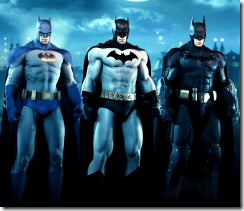Canon and Myth (Or “Why Phantom Menace Doesn’t Count”)
From an early age I have been attracted to the iconic stories of our culture. King Arthur and the Knights of the Round Table, Hercules and the 12 Olympians, Fairy Tales and Legends.
Disappointingly, I was not able to find an authoritative copy of most of those stories. I saw adaptation after adaptation in movies and comics and retellings, but there was no way for me to read “Hercules” the original story, nor really to read the definitive story of King Arthur. All the stories contradicted each other, and all of the versions I found to read were written hundreds of years after the stories were first told. I hated this about them, and it wasn’t until later that I came to realize this was not a flaw, but a great feature of mythology.
I shied away from Robin Hood and dug into Tolkien at first, thinking he had some internal consistency. But I soon learned that almost all modern High fantasy was Tolkien-Based, and it was far from consistent. Plus once the movies were made, and were undeniably awesome, a lot of the “canon” began to be debated.
 Superheroes did the same thing. I began to realize that there were innumerable Batmans with innumerable variations on the same backstory. Some with a Robin, some where Robin had died, some who never had a Robin. and fans were cobbling together a coherent story out of just the best of those plotlines. What’s more, so were the comics themselves as new authors happily ignored bad storylines while building on great ones.
Superheroes did the same thing. I began to realize that there were innumerable Batmans with innumerable variations on the same backstory. Some with a Robin, some where Robin had died, some who never had a Robin. and fans were cobbling together a coherent story out of just the best of those plotlines. What’s more, so were the comics themselves as new authors happily ignored bad storylines while building on great ones.
This is how mythology works. someone tells a great story, then someone else tells a followup, then someone retells the first story in a different way, and on and on and we keep what’s good and we forget what sucks. How do we decide what really happened to Arthur? Whatever story everybody liked the best.
That’s why Star Wars fans care what happened in The Clone Wars animated series, but try to avoid and subvert what happened in The Clone Wars movie. Because the movie was stupid. And ignoring and rewriting things that are stupid is a time honored tradition of mythological storytelling. That’s why the X-Men universe recently made a sequel that acknowledges what happened in X-Men 1&2 but goes back in time to prevent X-Men 3 and Wolverine Origins from affecting the timeline. That’s why Deadpool has a mouth now.
In many ways the Biblical canon works the same way. Sometimes people outside the faith like to imagine it was a shady meeting somewhere when we censored a bunch of stuff. In reality both the New Testament and the Old Testament were selected by the scribes listening to the fans. We kept the stuff that continued to ring true, we ignored or got rid of the other stuff.
A lot of us still do that with the Bible. If we are honest we probably spend more time reading impactful contemporary writers than we read the biblical text, and then it is only our favorite books. I’ll leave whether that’s right or not as an exercise for the reader, for Now I just wanted to introduce this idea.